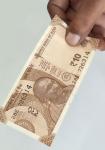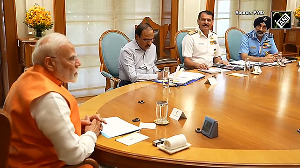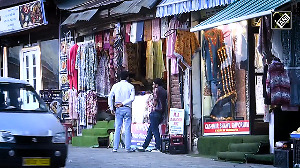A paradox exists at the heart of one of the most sporting, open and exciting World Cups in living memory.
Already, with 50 matches completed and 14 still to come, 19 red cards have been shown -- two more than in the whole of the 2002 World Cup. The all-time record of 22 reds shown in France in 1998 is likely to be broken some time this week.
| |||||||||||
However, FIFA takes an opposite viewpoint.
The world governing body maintains that because referees are showing more red cards, players are far more aware of the line they cannot cross. Therefore, as many players as possible are playing within the rules and the matches are in fact cleaner.
As FIFA spokesman Markus Siegler pointed out: "No new laws are being implemented, but the letter of the law is usually being applied and in most cases the players are responding by playing within the laws of the game.
"The players and coaches were warned at the beginning what would and would not be tolerated. Because the referees are being more consistent, the matches are more sporting and open -- that is definitely the case."
It is true that most games have been played in a better sporting spirit with opposing players lending a helping hand after a tumble, stopping play immediately for merited injuries and even smiling at each other rather than snarling.
That is also partly because so many club mates are facing each other here. At the start of the tournament exactly 50 past or present Champions League winners were sprinkled among the 32 squads.
RIGHTLY PUNISHED
But not everyone is happy with FIFA's approach and some feel that the game's basic, legal, physicality is under threat.
Swiss coach Koebi Kuhn said after his side picked up five yellow cards against France: "I still have no idea what some of those cards were for."
Captain Johann Vogel added: "We might as well take up basketball if they are going to blow for every slight contact."
England midfielder Frank Lampard agreed.
"The problem, watching the games so far, is that the slightest foul or incident can lead to a yellow card -- and that's what you've got to guard against."
As Claudio Gentile, one of the hardest defenders Italian football has ever produced and a World Cup winner with the Azzurri in 1982, once famously remarked:
"Footballers are footballers. We tackle hard and win the ball. If we wanted to dance, we would have become ballerinas."
RIGHTLY PUNISHED
Clearly, there have been some bad fouls but it is a remarkable fact that after 50 matches only one stands out for its blatant crudity and cynicism -- Italian defender Daniele De Rossi's elbow into the face of U.S. striker Brian McBride.
He deserved to be punished severely and was, receiving a four-match ban from FIFA's disciplinary committee.
But some punishments handed out by referees border on the farcical.
English referee Graham Poll has rightfully earned the wrath of FIFA president Sepp Blatter for handing out three yellow cards and one red to the same player in one match -- but those were errors of a technical nature.
Far worse, perhaps, was the over-reaction of Brazilian referee Carlos Simon to an incident in Saturday's second round match between hosts Germany and Sweden.
Sweden's ferocious-looking defender Teddy Lucic, already booked after 27 minutes, was red carded eight minutes later for holding back Miroslav Klose with about as much malign intent as a pussycat toying with a ball of wool.
As Switzerland's Vogel says, what will football turn into if challenges like that are punished?
Despite pre-World Cup warnings referees also allow too much holding at free kicks and corners to go unpunished, yet immediately flash a card for a late tackle not intended to maim instead of waving play on.
There is no doubt some referees make the right decisions one match and the wrong decisions the next. Generally speaking, though, they are fitter, younger and quicker and seem to be employing some discretion in their decision-making.
The World Cup will never return to the days of 1970 when not a single player was sent off in the entire tournament.
For purists more and more red cards distort too many matches even though, according to FIFA, it keeps them cleaner. The balance is not quite right yet.









 © 2025
© 2025